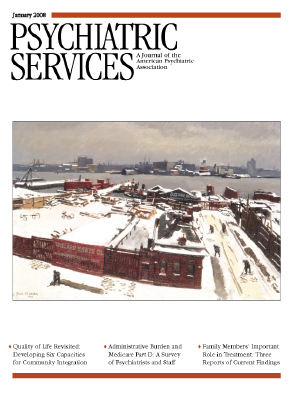This new book, The Spectrum of Psychotic Disorders, is meant to evaluate the hypothesis that psychotic symptoms are caused by a neurobiologic syndrome. The authors posit that anything that may cause an alteration of the frontal systems, temporal lobes, and the dopaminergic projections to these areas can lead to psychosis. If a threshold of damage or change to these structures and systems is reached, symptoms will develop. Everyone is at risk. The degree of risk of developing symptoms is influenced by endogenous factors such as genetics and exogenous factors such as disease, trauma, and toxins. In order to prove their hypothesis, the authors examine each psychotic disorder to determine whether it affects common brain structures and chemical systems.
The book is divided into nine parts: primary psychotic disorders, mood disorders, neurodevelopmental disorders, central nervous system disorders, psychosis induced by substance abuse and medications, neurodegenerative disorders, and psychosis associated with sensory impairment, along with an introduction and conclusion. There are more than 50 contributors. Each chapter, written by different authors, is organized in the same way. For example, the chapters start with the epidemiology of the illness and review its presentation and course, the suspected neuropathology, risk factors, and treatment. The quality of the evidence for each factor is rated by using the descriptors of Oxford Centre for Evidenced-Based Medicine levels of evidence criteria, which is of particular importance to the book. Overall, the grades of recommendation rate a "C," which means that the findings are based upon case series or extrapolated from systematic review or retrospective studies. The neurodegenerative disorders, such as Alzheimer's disease and Parkinson's disease have the best quality of evidence, and psychoses induced by medication have the worst. The persuasiveness of the authors' argument depends on the value of the data.
The authors conclude that within the limits of the quality of the evidence, psychotic disorders do fulfill the criteria to qualify as a neurobiologic syndrome. The suspected neuropathology—abnormalities of the frontal and temporal lobes—and neurochemical abnormalities—dopamine related—are found to some degree in all of the examined disorders. Whatever the cause of the symptoms of psychosis, the nature and severity of the presentation correlate with the location and degree of abnormalities in the relevant brain structures and pathways. Treatment of the symptoms is similar even when the symptoms are caused by different diseases, injury, toxins, or unknown forces.
Why is any of this important? It goes to the heart of questions about diagnosis and treatment. Because psychotic symptoms can develop from multiple vulnerabilities and pressures, how can primary psychotic disorders be reliably distinguished from psychotic disorders secondary to a general medical condition or substance abuse? Is there any value to making this distinction?
The Spectrum of Psychotic Disorders is not a book to sit down and read cover to cover. Each chapter can stand alone. Students, trainees, and budding researchers would be most likely to find this useful. Even though my training years are far behind me, it was very interesting to learn about what we now know, and still don't know, about the brain and illness.

